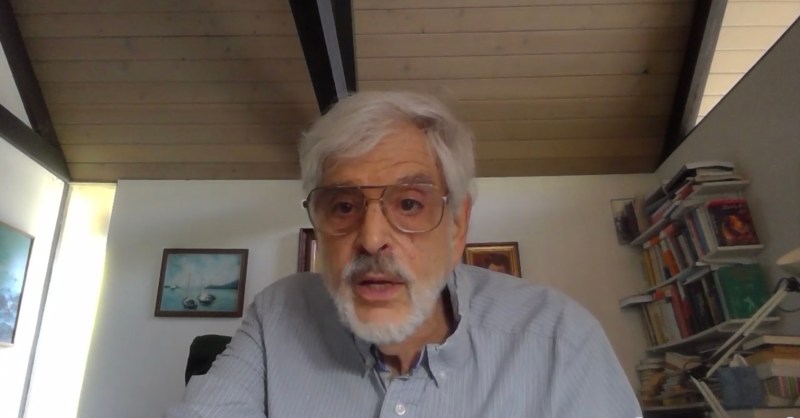Computer science professor emeritus Jeffrey Ullman was named one of two recipients for the Turing Award on March 31. Known as the “Nobel Prize of Computing,” the award given by the Association of Computer Machinery recognizes “major contributions of lasting importance to computing.” Ullman and his co-recipient, longtime collaborator Columbia computer science professor Alfred Aho, made “broad and fundamental contributions to the field of programming language compilers,” according to the award organization. In addition, Ullman, who first started teaching at Stanford in 1979, and Aho have written influential books and instructed generations of students.
The Stanford Daily [TSD]: How did you feel when you found out that you received the Turing Award — the greatest award there is for a computer scientist?
Jeffrey Ullman [JU]: I assume you’ve heard of the notion of imposter syndrome? And that’s kind of it. Let’s put it this way: they announced this every year, I never thought, “Hey, why is that not me?” I tend to do more theoretical stuff. I was frankly very surprised to win this.
TSD: What inspired you to pursue computer technology in the first place? When and how did you decide that you wish to dedicate your entire life to this field?
JU: One of the things I’ve noticed about my own life — and it’s probably true of a lot of people’s lives — is how very small decisions lead to big consequences. I remember when I was an undergraduate, that there was really no such thing as computer science. Even as graduate students, Al (Alfred Aho) and I were in a program called digital systems — an engineering program devoted to basic digital hardware.
When I was a junior in college, I discovered that you could become an actuary, which is a mathematician working for an insurance company. And the neat thing about this and this field was that you advanced by taking exams. So I took a couple of the exams and got good scores. So I got a job working for an insurance company after my junior year in college. I was assigned to assist a guy who was running a Burroughs 5500 computer. Then, the guy I assisted went on vacation for three weeks, so I was in charge of this computer for three weeks in 1962.
TSD: Just after finishing your junior year in college?
JU: Yes. I sort of got this notion that programming was for me. The next year I got to a summer job working out in Brookhaven National Laboratories, on Long Island. There, they taught us all Fortran and I spent the whole summer working on lines of assembly language code. And when I went to Princeton as a graduate student, I chose to study digital systems.
TSD: What phase of your career do you believe to be the most formative of who you are now?
JU: It’s hard to say because it was a series of weird steps. But I would say it goes back to when I was a senior in high school. There was a math teacher in his early 20s who had just come from Harvard. He took me and a number of other students, and he basically decided to tutor us on the beauties of mathematics. After school, he packed us into his car and drove around as he talked. He convinced us to do mathematics; so when I went to college, I majored in math.
I got a taste of not just mathematics, but the applications. I think that turns out to be very important in computing. You need to know a lot of math, but you also have to be tuned to what that math is for. I think that set me on the path I follow.
TSD: How do you believe that computer science will develop in the 2020s?
JU: It’s pretty well developed at this point; I think what’s happening is we’re moving into more and more application areas. One of the things I have been doing these past couple of years is that a group of undergraduates here talked me into starting a course which has a project that is done jointly by social science students and computing students. It’s the applications of computing to society and social problems that is really just beginning.
TSD: Where will you go from here? Do you have a specific set of projects you are researching and developing over the next several years?
JU: I’m 78 years old. It’s a young person’s game.
TSD: The president is 78 years old.
JU: Politics is something where experience counts. Computer science is something where experience almost serves as a detriment. At this point I’m really more content to work with a couple students on whatever interests them and try to be helpful. As a faculty member, I don’t try to get students working on my aims; I try to adapt to their aims.
This interview has been edited for concision and clarity. It has also been updated to correct a typo in the transcript.
